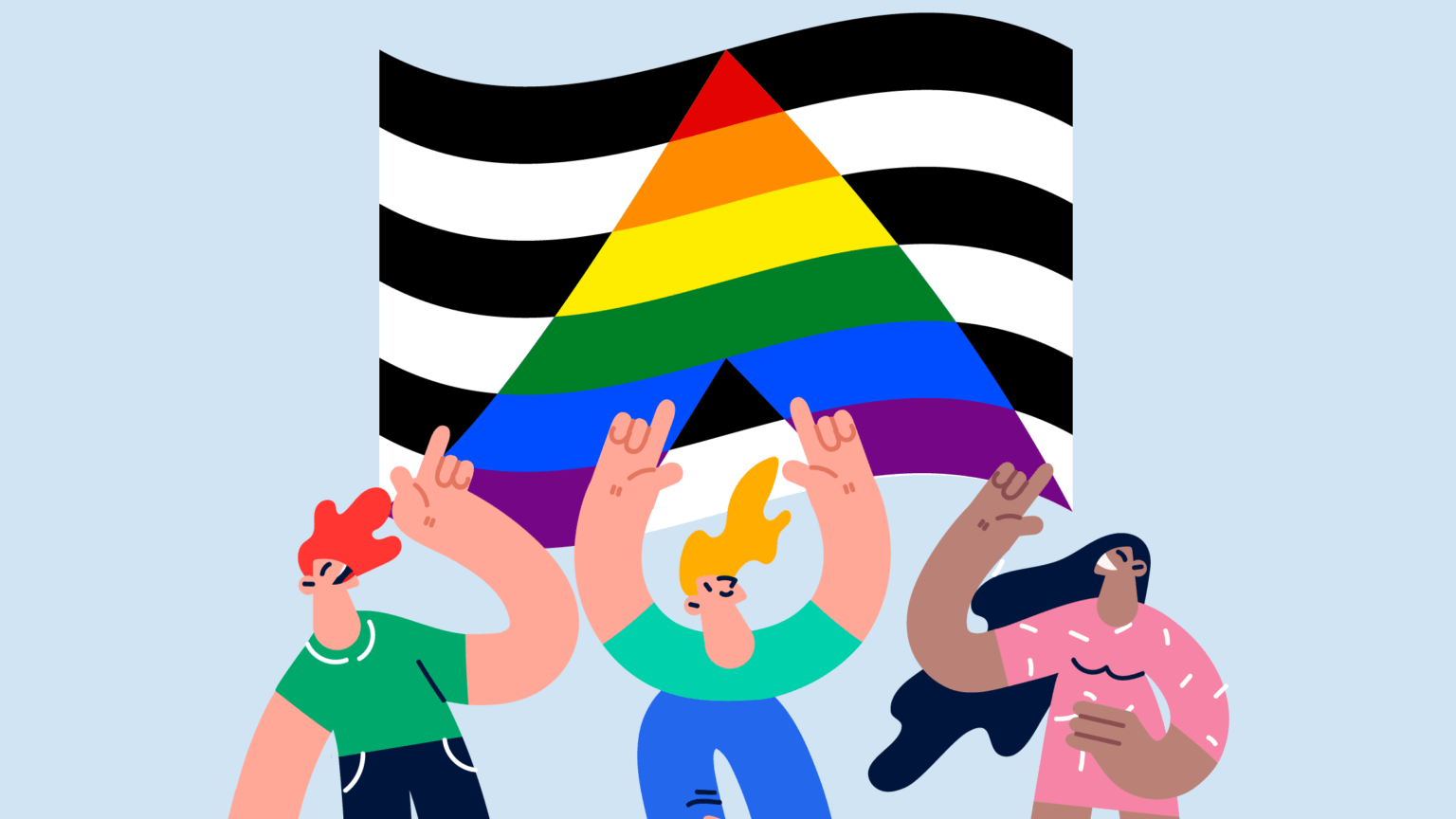
Contact us using Live Chat. It operates during the hours that the library is open for online service. Or email us your questions.
Below, you'll find a list of steps you can take to become an ally to the LGBTQIA+ community. On the left-hand side of the screen underneath the navigation menu, you'll also find additional resources to support these steps and enhance your efforts and education.
Before you jump into action, you need to know the history. While it may seem easy to turn to members of the LGBTQIA+ community, it is not their job to explain LGBTQIA+ history and concepts to you. Instead, do your own research.
The other tabs in this LibGuide, especially the resources tabs, are meant to be starting points on providing context for Pride Month and other LGBTQIA+ issues and movements. So start here and continue to conduct your own research on topics you want to learn more about.
Part of educating yourself as an ally is learning gender identity terms, what pronouns are, and how to use them. Use the articles and guides below to help you get started in this process.
To best understand how to help the LGBTQIA+ community, listen to what they're telling you and offer support where appropriate.
While you're educating yourself and listening to community members, it's important to stay open-minded. People have different experiences, perspectives, and identities from your own, and a topic you're unfamiliar with may come up. Be willing to hear about these new topics, perspectives, and identities.
You should also be mindful that in conversations with community members, any individual may find it difficult to share their identity with you. You should respect their privacy and not be invasive. If they do decide to be vulnerable with you, express your gratitude and appreciation.
In addition to holding conversations, other ways to listen to the community are attending local discussions or talks, researching virtual discussions or webinars, or listening to podcasts, such as any of the podcasts listed in this guide’s podcasts tab.
Performative allyship occurs when you use the struggles of others to make yourself look like a better or more moral person. Instead be more aware of the motivations behind your actions.
For instance, when reposting something on Instagram, ask yourself, are you posting this because it’s with the intention of being a true ally, or because it will make you look good?
As a person of privilege, it is your responsibility to speak up in social circles where LGBTQIA+ individuals are underrepresented/not represented.
For instance, if you’re at a social gathering and someone misgenders someone else or says something transphobic, it is your responsibility to speak up for those who are not there and challenge that person.
When you live in a position of privilege, it can be difficult to give up the comfort that comes with the privilege. However, in order to be a good ally, it is necessary that you surrender your comfort, especially since that comfort comes at the expense of others. When you don’t give up your comfort, you benefit from social structures that harm the LGBTQIA+ community.
Instead, take the time now to understand and confront your privilege as well as own up to your complicity in discriminatory systems.
Being an ally is an ongoing process, and you are bound to say or do the wrong thing sometimes. Making mistakes is a natural part of trying something new. What’s important is that when you do make a mistake, acknowledge what happened and then try not to make the same mistake again.
For instance, if you accidentally misgender someone, apologize for the mistake and make a mental note to do better next time.
Promote others’ voices and don’t center yourself in the conversation. Your role as an ally is to offer support. So listen to what members of the LGBTQIA+ community need, even if that is just sharing their stories and messages so that they reach wider audiences.
Make your actions match your words and show up for the LGBTQIA+ community in ways that matter. This may look like taking responsibility for your actions, educating your peers, signing petitions, attending protests and marches, donating to LGBTQIA+ causes, volunteering for LGBTQIA+ organizations, or providing a safe space for your LGBTQIA+ friends and family.
If you’re interested in showing your support by attending Pride Month events, check out the Events tab!